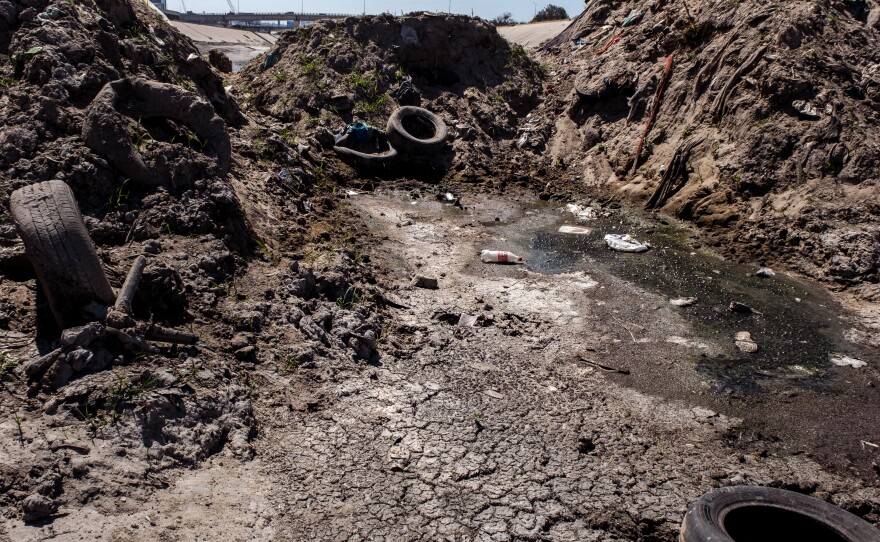Four San Diego-area legislators on Tuesday introduced an amendment to the 2024 National Defense Authorization Act in an attempt to bring federal assistance to the ongoing Tijuana River Valley sewage pollution crisis.
Reps. Juan Vargas, Scott Peters and Sara Jacobs, all D-San Diego, and Mike Levin, D-Dana Point/northern coastal San Diego County, penned the amendment, which would establish a federal program — the Tijuana River Public Health and Water Quality Restoration Program — to plan, coordinate and provide grants for public health and water quality restoration projects in the Tijuana River Valley.
"Toxic pollution in the Tijuana River Valley has harmed the health and well-being of our communities for too long. We need all hands on deck to address this issue," Vargas said. "By establishing a new federal program aimed at combating pollution, our legislation will bring experts to the table to fully focus on this issue and drive more resources to impacted communities."
San Diego County recently requested an investigation by the U.S. Centers for Disease Control and Prevention and the California Department of Public Health into cross-border pollution and its effect on public health.
Some county beaches have been closed for more than 900 consecutive days due to sewage contamination. More than 100 billion gallons of untreated sewage, toxic chemicals, trash, sediment and other pollutants have flowed into the Tijuana River Valley and out into the Pacific Ocean.
"As we work to stop the unmitigated flows of hazardous water, we must contend with the decades of pollution already caused by this crisis," Peters said. "Our proposal puts restoration efforts in San Diego on par with places like the Great Lakes, San Francisco Bay and Long Island Sound. This will mean more resources, better coordination, and a real federal plan to clean up our waterways and help the communities that have borne the brunt of this environmental disaster."
According to the Surfrider Foundation's 2023 Clean Water Report, not once did the waters off Imperial Beach meet state health standards last year. In April, environmental nonprofit American Rivers called the Tijuana River one of the country's "most endangered."
"The regular flow of sewage and pollution from Mexico has damaged our public health, lowered our water quality, and made the Tijuana River one of the most endangered rivers in the country," Jacobs said. "While we've made significant progress lately to bring home hundreds of millions of federal dollars to address this crisis and we welcome Mexico's increased cooperation, more work remains."
In March, San Diego-based business advocacy groups sent a letter to President Joe Biden asking for more help with the U.S.-Mexico border pollution problem.
Also that month, state Sen. Steve Padilla — whose district includes southern San Diego County — said he would introduce environmental justice legislation to tackle border pollution.
Last October, the federal government announced $310 million to expand wastewater treatment in the South Bay as part of an ongoing effort to tackle cross-border pollution in the Tijuana River Valley.
"It's critical that the federal government does everything it can to stem the flow of toxic pollution into our waters," Levin said. "By creating a program that will help clean up the Tijuana River Valley, we can help protect the health of our communities, economies, and the local ecosystem."
A group of South Bay leaders also met Tuesday to urge California to declare a state of emergency and to reiterate the call for the CDC to assist with monitoring and assessing residents' health in affected communities.
"The stakes are high in the South Bay and we cannot afford to have this crisis drag on with no end in sight," said Danielle Moore, vice chair of the Port of San Diego Board of Port Commissioners. "The polluted and toxic sewage flows coming through the Tijuana River Valley are noxious. They are contaminating the water, soil, and air. It's sickening San Diegans, threatening jobs, hurting businesses, and harming recreation. Lives and livelihoods are at stake."
In 2021, the county received $10 million from the state Coastal Conservancy to reduce trash and sediment movement into the Tijuana River Valley.
More recent efforts include air monitors in South County to track pollutants.







